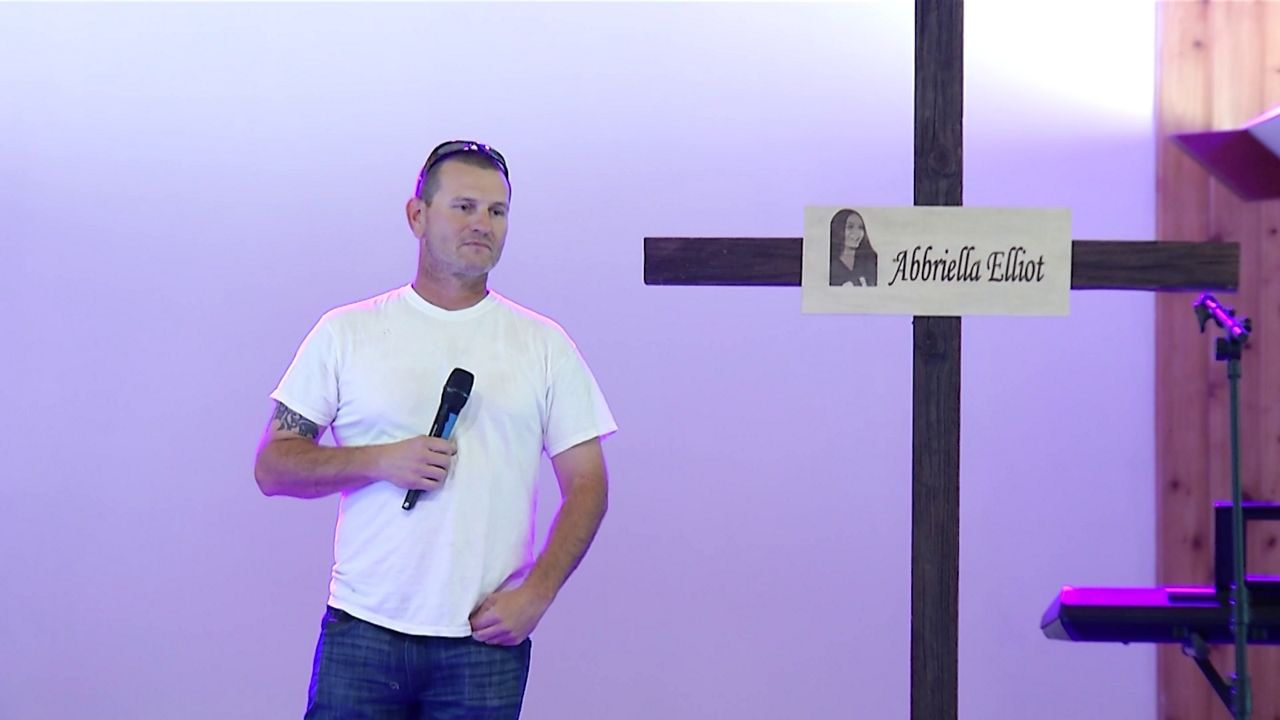Allison Miller is the capital case coordinator working in the Public Defender’s office in Florida’s 6th Judicial Circuit (Pinellas-Pasco County). She believes it’s wrong to execute death row inmates with serious mental illnesses, and so she and a colleague recently wrote up a draft of a bill that she presented last week to the Pinellas County Legislative Delegation.
What You Need To Know
- Asst. Public Defender in Pinellas-Pasco wants Florida lawmakers to ban capital punishment for mentally ill people
- U.S. Supreme Court ruled in 2002 that executing people with intellectual disabilities violates the 8th Amendment
- That ruling left it up to states to decide how to define “intellectual disabilities”
“(In) the bill that I’ve proposed, the Legislature would define what qualifies as a serious mental illness. But then the court system would function as the gatekeeper,” she told Spectrum Bay News 9 on Tuesday inside a courtroom in the Pinellas County Courthouse in Clearwater. “Whatever case the defense attorney would think is appropriate or would qualify for ineligibility because the defendant is seriously mentally ill, that motion would be filed, and then it would be argued by both parties. And the judge presiding over that case would make that decision.”
The language in Miller’s proposed bill strongly resembles the exact same law that lawmakers in the Republican-controlled Legislature in Ohio passed and Republican Gov. Mike DeWine signed earlier this month. And it’s been embraced by St. Petersburg Republican State Sen. Jeff Brandes, who says he will craft his own bill on the issue before the regular Florida legislative session begins in March.
“I fully support the idea of ending the death penalty for those who are mentally ill,” he said.
The U.S. Supreme Court ruled in 2002, in Atkins v. Virginia, that executing people with intellectual disabilities violates the Eighth Amendment’s ban on cruel and unusual punishment, but it allowed the states to define “intellectual disability.” In the ruling, it was stated that the Eighth Amendment should be interpreted in light of the “evolving standards of decency that mark the progress of a maturing society.”
Banning the death penalty for the mentally ill is, in many ways, an extension of that 2002 ruling, says Hannah Gorman, the director of the Balanced Justice Project at Florida International University’s College of Law.
“Someone suffering from intellectual disability, very similarly to someone suffering from a serious mental illness, is less morally culpable in that their thinking is disrupted,” Gorman said. “You have a reduced ability to be able to understand and conform your behavior into a behavior that wouldn’t violate the particular criminal law that we’re talking about. And in this case, it’s first-degree murder.”
In the Ohio law, “specific mental illness” is defined as a person who has been diagnosed with one or more of the following conditions: schizophrenia; schizophrenia disorder; bipolar disorder and delusional disorder.
Miller says she omitted specific mental illnesses in her proposal because she could foresee expert witnesses in a case arguing whether the defendant truly met the criteria. “The point is the impact it’s having on that person’s functioning,” she says, adding that she would be fine if the final legislative product resembles what the Ohio Legislature passed.
Florida is currently seen as an outlier when it comes to the application of the death penalty. Currently, 22 states have banned public executions, and another 12 haven’t conducted an execution in more than a decade, according to the Death Penalty Information Center.
There are more than 330 people on death row in the Sunshine State. That’s second only to California, which has more than 700 people on death row. However, Gov. Gavin Newsom imposed a moratorium on the death penalty in 2019 (there has not been an execution there since 2006).
While FIU’s Gorman says that 75% of countries in the world don’t practice the death penalty, and its use has been dramatically reduced in recent years, a Gallup poll published last fall still showed a majority of Americans – 55% – still support it. However, Gallup noted American’s support for the death penalty “continues to be lower than at any point in nearly five decades.”
A Public Policy Polling survey of just Pinellas County residents in 2018 found that two-thirds of those polled (66%) said that they did not believe the local state attorney should seek the death penalty against people with severe mental illness.
For her part, Miller says the fact that a Republican-controlled Legislature and governor in Ohio just passed a similarly written bill, and that a GOP state Senator in Florida will be proposing the same idea, should demonstrate that it’s not a radical idea.
“We’re talking about limiting the eligibility for the death penalty to exclude those with serious mental illness,” she says. “It doesn’t seem controversial to me.”









